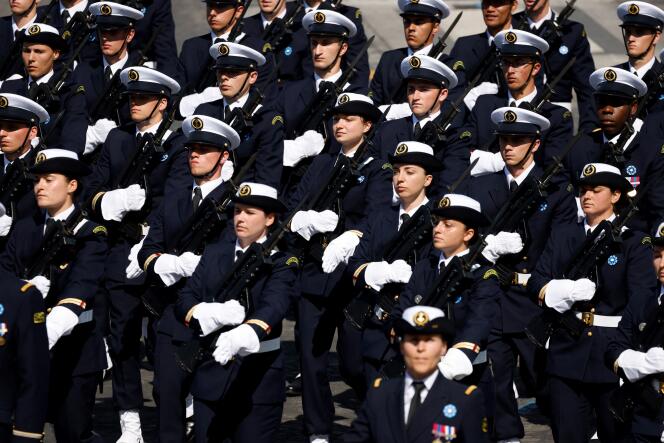


For the first time since the start of the war in Ukrainian in February 2022, a sociological study on "young people and war" is to be made public at Paris' prestigious Sciences Po university, on Friday, April 12. The study, conducted by a sociologist specialized in the study of youth, Anne Muxel, an emeritus researcher at the CNRS national research center and associate director of the Center for Political Research at Sciences Po (Cevipof), compares young French people's perspectives with the concrete prospects of war.
Conducted on behalf of the Institute for Strategic Research (IRSEM) at the France's Military School and the Directorate General for International Relations and Strategy (DGRIS) – both part of the armed forces ministry – the study, carried out from February to December 2023, examines all aspects of young French people's relationship with the armed forces: From their perceptions of current and future wars; to the influences of their family environment, school and video games; to a detailed examination of their willingness to serve in the armed forces and their resilience in the event of conflict.
In addition to her years of research into the relationship between young people and the armed forces, Anne Muxel's study is based on a survey conducted by the Ipsos polling agency among a representative sample of 2,301 young people aged from 18 to 25. The survey – for which she designed the questionnaire – was carried out online in June and July 2023, more than a year after the start of the war in Ukraine, but before the failure of the Ukrainian counter-offensive and the current pessimistic outlook.
The results are nonetheless indicative of a significant change in the way young people view military service, said Muxel. While there have been regular surveys in recent years highlighting their relatively good attitudes towards the armed forces, according to the results obtained this time, a new milestone has been reached: Over 51% of young people surveyed now said they would be "ready" or "maybe ready" (45%) to enlist "if the protection of France required the country to enter into the war in Ukraine," even if only 17% of them said they were certain of this choice, she explained
This overall support for military service rose to 57% when young people were asked about their willingness to join the armed forces "in the event of war," without specifying the Ukrainian context. These figures are consistent with those recorded by Ipsos in an opinion poll conducted in February 2023, where under-35s showed themselves to be "clearly more in favor" of France sending troops to Ukraine, compared with 17% of over-50s, as Muxel noted in her study. This set of indicators confirms a "renewed patriotism," which "goes beyond national borders and appeals to a moral altruism, a benchmark among the approaches to commitment of young people today," she summarized. According to her, they also corroborate "the disappearance of the anti-militarism that had previously prevailed among young people" as a result of conscription.
You have 49.76% of this article left to read. The rest is for subscribers only.
